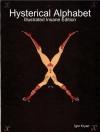In ‘Polite Conversation in Three Dialogues, ‘ Jonathan Swift employs wit and satire to explore the intricacies of social interaction in early 18th-century England. Through a series of cleverly crafted dialogues, Swift dissects the art of conversation, highlighting its complexities and often farcical nature. The literary style is marked by its incisive humor, revealing the absurdities of societal norms and the superficiality of polite exchanges. Set against the backdrop of the Swiftian critique of contemporary manners, this work serves not only as a reflection of the conversational landscape of his time but also as a prescient commentary on the timeless nature of human interaction. Jonathan Swift, a prominent figure of the Enlightenment, was renowned for his sharp political and social critiques. He drew inspiration from his experiences in both the ecclesiastical sphere and the literary salon culture, informing his understanding of manners and communication. Swift’s keen observational prowess and his own encounters with the art of rhetoric are powerfully woven into these dialogues, presenting a nuanced exploration of politeness. ‘Polite Conversation in Three Dialogues’ is a must-read for those fascinated by the interplay between language and society. Its humor and relevance endure, making it suitable for scholars and casual readers alike, inviting them to reflect on how the dynamics of conversation continue to shape human connections.
关于作者
Jonathan Swift (1667–1745) was an Irish satirist, essayist, political pamphleteer, and poet, best known for his work ‘Gulliver’s Travels’, a classic of English literature that remains widely read and influential. Swift’s writing is marked by a mastery of ironic and satirical devices, through which he critiqued contemporary society and the human condition. Born in Dublin, Ireland, Swift was a man of his times, reflecting the tensions of the early 18th century in his works, employing a distinctive style characterized by acerbic wit and a penchant for the mock-heroic. ‘Polite Conversation in Three Dialogues’ highlights Swift’s keen observation on the artificialities of social interaction, caricaturing the formulaic expressions of civility that dominated polite society. Swift’s unflinching criticism of the British government and societal norms is evident in his other famous works, such as ‘A Modest Proposal’ and ‘The Drapier’s Letters’. In ‘Polite Conversation’, Swift exposes the hollowness of polite discourse, suggesting that genuine communication is often sacrificed for the sake of appearance. Swift’s literary legacy endures, not only for his humorous and caustic style but also for his capacity to engage with the moral and philosophical questions of his day, cementing his place in the canon of English literature.












